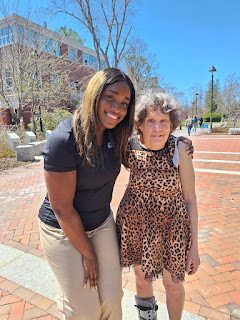There were these crows. September 2 they number 212 in the town of Auburn, Pennsylvania. Nothing alarming. But on October 5 there are 29,433; on November 4 there are 42,387; and on November 6 there are 56,221. Flocks of crows covering trees and roofs, swooping down in noisy groups, leaving deposits of shit and shed feathers. You get the idea. Needless to say, the residents are desperate to find a solution to this problem.
But Leighton (17), protagonist of Kyrie McCauley's If These Wings Could Fly, has a more urgent problem--her embittered father. A football star local hero, he had the career he'd counted on putting him through college derailed by an injury. Now his business is tanking. It seems all people want to talk about--to define him by--is his failures.
When the stress gets to him he takes it out on his family. He breaks things, hurts his wife, and terrifies Leighton and her little sisters, Campbell and Juniper. This happens so frequently the girls know where to hide. Even when her father is behaving Leighton can't relax, knowing it's only a matter of time before the eruption. She knows about the gun on top of the refrigerator.
Even though sometimes when he goes too far her mother takes the girls to a relative's house for a few days they always return. She still loves him. Despite all that he puts them through she's convinced that if they learn how to not aggravate him things will be fine.
Leighton is a senior, planning her post high school life. She very much wants to go to a college with a strong journalism program. But how can she leave her beloved sisters behind with her violent father and her mother who won't face reality?
But the girls have legions of magical winged protectors who bring them presents, sometimes just what they need.
McCauley wrote the book that she would have liked available when she was a teen and didn't know that what she was experiencing was domestic violence.
"In writing a story that centered domestic violence, I knew that I had to show how the threat of violence hangs overhead, and how the fear can often feel worse than the fall. A story in which the thing you are afraid of looks very much like someone you love, and how confusing that can be. It makes domestic violence very difficult to navigate from the inside, and incredibly easy to misunderstand from the outside."
On a purrrsonal note, you probably aren't going to believe this. But it's true. A human interest editor from People magazine tracked me down through UMaine. He wants to do a story on my amazing graduation. Wow!
A great big shout out to Sierra who wrote the story that caught his attention.
Jules Hathaway
Sent from my U.S.Cellular© Smartphone











